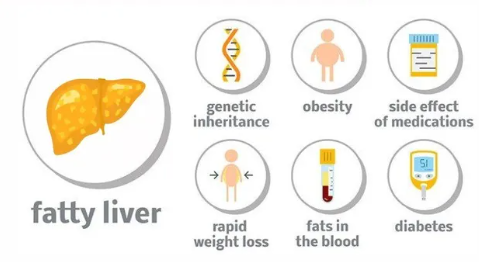INTRODUCTION:
Hello everyone, today we will be discussing an increasingly common liver condition known as non-alcoholic fatty liver disease. Non-alcoholic fatty liver disease, or NAFLD, is a condition in which fat builds up in the liver, even though the person does not drink alcohol excessively. This can cause inflammation and scarring of the liver, leading to serious health problems.
SYMPTOMS:

Many people with NAFLD have no symptoms and are diagnosed only after routine blood tests show abnormal liver enzymes. However, some people may experience fatigue, weakness, or pain in the upper right abdomen.
CAUSES:

The exact cause of NAFLD is not known, but it is commonly associated with obesity, insulin resistance, and metabolic syndrome. These conditions can cause the liver to accumulate excess fat, leading to inflammation and scarring. Other factors that may contribute to NAFLD include high-fat diet, sedentary lifestyle, and genetics.
DIAGNOSIS:

NAFLD is typically diagnosed through blood tests and imaging studies, such as ultrasound or CT scans. A liver biopsy may also be performed to confirm the diagnosis and determine the extent of liver damage.
TREATMENT:

Treatment for NAFLD usually involves lifestyle changes, such as losing weight, increasing physical activity, and following a healthy diet. If you have insulin resistance or metabolic syndrome, your doctor may prescribe medications to help manage these conditions. In severe cases, a liver transplant may be necessary.
PREVENTION:

The best way to prevent NAFLD is to maintain a healthy weight, eat a balanced diet, and get regular exercise. Limiting alcohol consumption and avoiding exposure to toxic chemicals can also help protect your liver.
CONCLUSION:
In conclusion, non-alcoholic fatty liver
disease is a serious condition that can lead to liver damage and other health
problems. If you think you may be at risk for NAFLD, talk to your doctor about
ways to prevent and manage this condition. Remember that small changes to your
lifestyle can make a big difference in your overall health and wellbeing.

Comments
Post a Comment